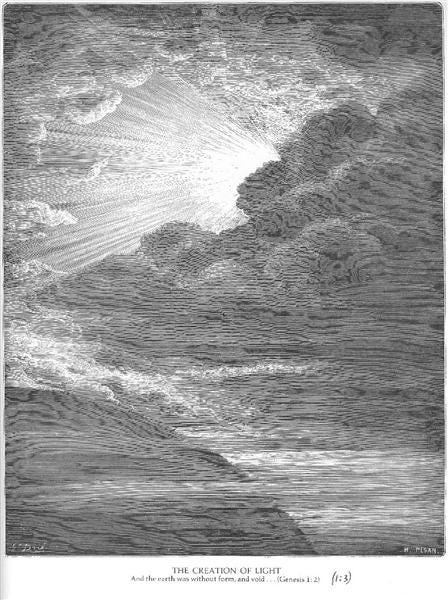Blurs, Hazes, and Transitional Stages
The stability of Christ in an unstable world
“You are the true master of death, because the true master does not seek to run away from Death. He accepts that he must die, and understands that there are far, far worse things in the living world than dying.”
Dumbledore to Harry—Harry Potter and The Deathly Hallows
For I am sure that neither death nor life, nor angels nor rulers, nor things present nor things to come, nor powers, nor height nor depth, nor anything else in all creation, will be able to separate us from the love of God in Christ Jesus our Lord.
Romans 8:38-39
I am reading a book right now called A Non-anxious Presence by Mark Sayers. It is meant to instruct individuals on how to be a leader in times of uncertainty or when times feel uncertain. These times are labeled as ‘Grey Zones’, and occur when an environment goes through changes.
In the book, Mark explains how people tend to trust in earthly institutions to receive safety and stability, especially during Grey Zones. These are labeled as ‘strongholds’. Strongholds can take form as governments, families, career, etc. They provide temporary order and safety, but never last. When these institutions fail, people again find themselves in a Grey Zone.
Sayer’s main message is that individuals who remain calm, steady, and grounded in Christ during Grey Zones are the ones who best serve those around them. They don’t lose nerve in the midst of chaos. They are able to clearly discern what is a good course of action in a directionless environment. How do they do this? By not putting their trust in the safety of their environment, but instead trusting in the Person who is above their earthly environment. Only then can they receive the stability, peace, and nerve to act in a way that pacifies the chaos surrounding them. A non-anxious leader trusts that Christ is their security—not their environment.
This book has really helped me think about what it means to lead. Mark points out that this process of trusting Christ as one’s security still includes moments that feel unstable. These non-anxious leaders still take a toll when embracing the chaos of the environment around them. Pain and sacrifice occur. But, after this pain and sacrifice, the environment becomes stable. Others benefit from the sacrifice. Growth occurs. People can become stronger and wiser.
Mark provided both good and bad examples of people who led in a grey zones, such as Abraham (who was a mixed bag of both good and bad leadership) and Moses (also a mixed bag).
The concept of Grey Zones is interesting because it can apply to both groups and individuals. For individuals, I think it can be boiled down to the feeling of being uncomfortable. When I am uncomfortable, how do I respond? Do I immediately turn to make myself comfortable or be in a comfortable environment? Or do I consider the fact that this might be exactly what God wants for me, so that I can trust in Him instead of my environment, and the people around me benefit from my temporary uncomfortability?
What do we commonly run to in the Grey Zones of our lives? When the environment surrounding us moves to instability, how do we react? Do we try to numb ourselves from uncomfortablity? Shopping? Music? Food? Attach ourselves to relationships? Disassociate from people? Trust in political figures for deliverance? Doomscroll (I love that word, by the way) on social media? Essentially, how do we numb ourselves from temporary pain?
How do the leaders we look up to respond to Grey Zones? The story of Abraham in Genesis is all about him being in uncertain situations and struggling to trust God in the midst of them. Sometimes he does; but, more often than not, he fails. Even so, God stays with him and carries him and his family. Same could be said of Jacob and of Moses.
We could look throughout all of history and find mixed bags of leaders who have struggled to trust God in times of uncertainty. The fact that there are so many mixed bags of leaders is kind of the point of Mark’s message—none of us can be a perfect non-anxious presence. That is why we must trust and learn from the true Presence, who is the author of all good things. Only then can we grow into becoming a presence like Christ. We must accept our inability to produce good without Christ, who took the cost of our deeds that defied His perfect design and put them on Himself. Through His act of Love, we are able to take part in His Presence and be with Him. By accepting this, we get to be with Him, and by being with Him, we become more like Him. As time goes by, the people of His Presence affect their individual environments as a testimoney of what Christ has done and is doing.
God will always be above uncertainity. He can always use it for Good, and is with us as we walk in uncertain times.



Thank you Jake. This is both inspiring and comforting.